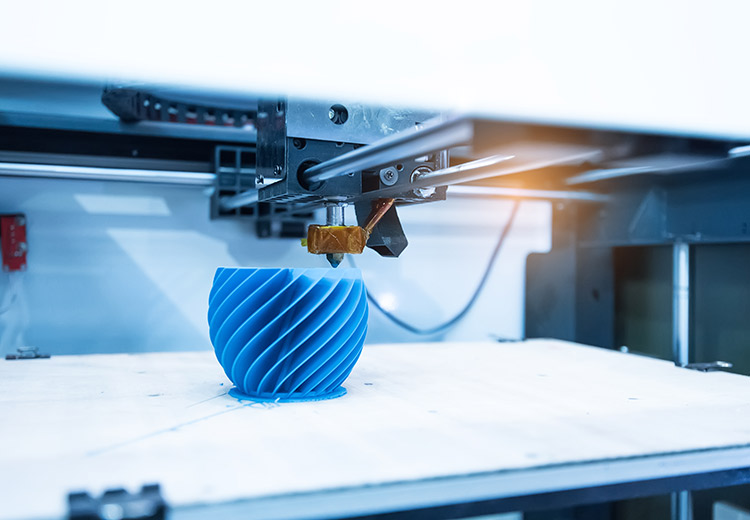13 September 2021 |
3D printing impact on Logistics
One of the technological advances that is called to impact the logistics sector is that of 3D printing. Its main effect will be that the supply chain will be less complex: thanks to this new technology, it will not be necessary to have so much stock and storage costs will be considerably reduced, since only essential materials and finished products will be stored. At the same time, companies will be able to offer more complex and personalized products.
The implications and benefits of this new manufacturing technology for the logistics industry range from improving competitiveness and reducing costs for companies to becoming more sustainable. Let's see in detail which are the most relevant benefits:
- Inventory reduction
Mass customization will provide the opportunity to reduce inventories as products are made on request. This is a general advantage for the industrial sector, but also a fundamental change for small and medium-sized companies.
- 3D printing in warehouses, on demand
Rather than large surfaces, what will be demanded are buildings that cooperate and adapt to 4.0Industry. So, 3D printing can be carried out from any company with the same mechanical and physical characteristics.
- Immediacy
Given the manufacturing-on-demand capability offered by 3D printers, almost immediate delivery can be ensured. Thanks to this technology, two of the main demands of today's consumers can be met: personalization and immediacy.
- Spare parts in less time
The spare parts sector will be one of the most benefited ones. Currently, there is a large investment in maintaining stocks to supply spare parts in various types of industries. The importance of satisfying immediacy and that the parts are sent in the shortest possible time is one of the vital needs of the sector. Through 3D printing, getting spare parts can be an activity of a few hours. Even within the company, staff could download the spare parts file and print it directly.
- Manufacturing on routes
For online orders, it will not be strictly necessary to have a warehouse stocks since they can be manufactured during the journey to the final destination. For this to be possible, the transport vehicles must be equipped with 3D printing machinery. This application will reduce delivery time and save resource costs.
- •Boosting circular economy
Additive manufacturing will help companies improve materials productivity by eliminating waste that is usually accumulated in traditional manufacturing; therefore, it will stimulate circular economy with the benefits that this entails for sustainability.


